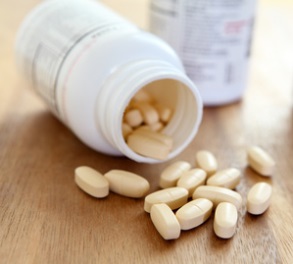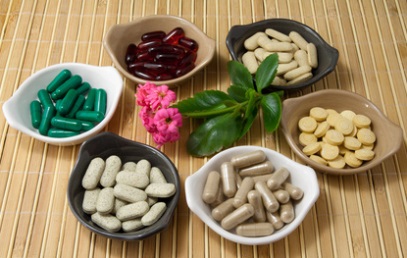
There are some vitamins for rosacea, and also some other dietary supplements for rosacea, that may improve your condition and help reduce certain symptoms. Vitamins aren’t a cure for rosacea but the right supplements, along with other lifestyle changes (like avoiding foods that cause your symptoms to flare up, avoiding alcohol and caffeine, using sunscreen outdoors, and managing stress), can make your condition manageable and prevent it from getting worse.
Vitamins For Rosacea
The following vitamins may help with rosacea.
Vitamin A – Vitamin A is needed for healthy skin and cell growth and has long been used by dermatologists to treat skin disorders like rosacea. Since vitamin A is a fat-soluble vitamin, though, it is possible to take too much and that can lead to serious health problems. Taking small amounts of vitamin A in a supplement, such as an amount found in a typical multivitamin, should be safe, but talk with your doctor before taking large doses. Your doctor can order blood tests to monitor your vitamin A level to make sure you’re taking the correct amount for you.
B Vitamins – People with rosacea are sometimes found to be deficient in some of the B vitamins and taking a B complex may help. Vitamin B2, or riboflavin, helps skin cells secrete protective mucous, and vitamin B12 helps with the growth of healthy skin cells. B vitamins are water-soluble, so there is less risk of taking too much and developing health problems as a result.
Vitamin C – In addition to being a powerful antioxidant that increases skin health, vitamin C helps strengthen skin tissue.
Zinc – According to Whole Health Chicago, a Center for Integrative Medicine, zinc is a mineral that helps heal the epidermis (the top layer of skin) and it also helps prevent vitamin A deficiency. It’s possible to take too much zinc and develop health problems as a result, so check with your doctor before taking large doses. Your doctor can order blood tests to monitor your zinc level to make sure you’re taking the correct amount for you. Small amounts, like the amount found in a typical multivitamin, should be safe to take.
Other Dietary Supplements For Rosacea

In addition to taking vitamins for rosacea, there are other dietary supplements you might find helpful.
Ginger – Ginger is an herb that has anti-inflammatory properties. It can be added to food or taken in capsule form.
Turmeric – Turmeric is another herb with anti-inflammatory properties. It can also be added to food or taken in capsule form. Some people should not take turmeric, including those on blood-thinning medications. Check with your doctor or pharmacist if you’re not sure if turmeric is safe for you.
Flaxseed Oil – Flaxseed oil is a good source of essential fatty acids which can reduce skin inflammation. It also helps regulate the production of prostaglandins, hormone-like substances that help blood vessels contract, thereby reducing redness and the abnormally visible blood vessels found in people with rosacea.
Borage Oil – Borage oil is another good source of essential fatty acids and helps reduce skin inflammation.
Recommended Vitamins For Rosacea
We like the Skin Support Supplement from Zenmed, which contains both vitamins and other supplements for rosacea, including vitamin A, vitamin C, and borage oil. According to the Zenmed website, taking one capsule twice a day is all it takes to improve the health of your skin. Reviews on the website by people that have tried the Skin Support Supplement give it 4.5 out of 5 stars.
We also like the Zenned Skin Support Serum, which contains vitamin A, vitamin C, and other natural botanical ingredients that reduce redness and improve skin health; the Gentle Cleansing Cream, which contains vitamin A, vitamin E, and other natural ingredients that nourish the skin while cleansing it; and the Facial Cleansing Gel, which contains vitamin A, vitamin C and other natural ingredients that remove excess oil and other debris from the skin without causing further damage. To learn more, just follow this link to the Zenmed Website.
Ref: Whole Health Chicago
